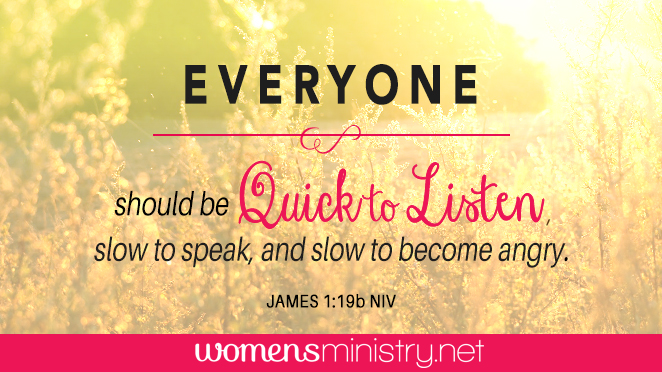
The other day someone was telling a story and I was so intrigued that I asked a lot of questions. The problem was not the questions but it’s the idea that my many questions – sometimes voiced mid-sentence – did not convey what I wanted. I wanted her to know I am interested in what she was saying but, instead, my questions said that I’m not listening.
I wish I could say this didn’t happen very often, but I’m realizing it does. And I also realize that good leaders, good friends and good spouses all have one thing in common – they are good listeners. Perhaps that’s why we are commanded to be “quick to listen” in James 1:19. So, I am on the journey of purposefully becoming a better listener.
Thankfully, listening is a skill that can be improved upon. Let’s consider these tips to becoming a better listener:
- Remove Distractions: Multitasking and listening do not go well together. If you want to be a good listener, be intentional about pressing the pause button, putting all else aside and giving your full attention to the person speaking to you.
- Hold Questions Until the End: If you are afraid you’ll forget your question, keep a pen and paper and quickly jot down your thought. If you need to do this, it’s a good idea to let the other person know up front so she isn’t surprised when you start writing while she is speaking. Of course, don’t write so much that the speaker thinks you aren’t paying attention – just a note to remind you what you wanted to ask.
- Make Eye Contact: If you are purposefully making eye contact with the other person, then it is a little easier to be intentional about listening to what is being said.
- Listen Objectively: This one can be extremely difficult but it’s also very key to listening well. If you allow yourself to get caught up in emotion, then you forfeit the ability to listen. Anger may cause you to lose the ability to hear anything at all because it has put up a wall. On the flip side, excitement may make your mind swirl with ideas so that you don’t hear anything else that’s being said to you.
It will take practice and intentionality, but we can all become better listeners. And, the positive effects will be felt and even seen as your team and those around you feel heard and valued.
Question: What methods help you to be a leader that listens well? Share below!

Comments